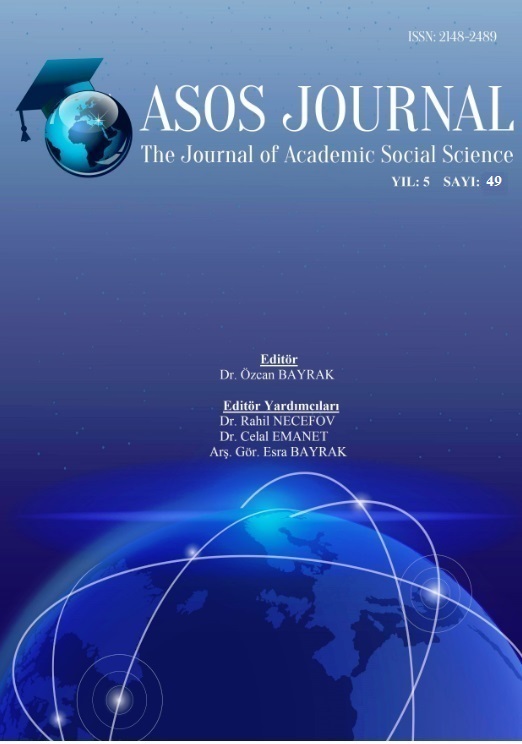Author :
Abstract
Ökotourismus ist die mit dem Tourismus verbundene Dimension, in der die Leute unserer Zeit eng mit der Natur schon für eine kurze Zeit sind und wenn möglich sie die Zeit mit der ursprünglichen lokalen Kultur zu verbringen wünschen. Andererseits ist der Ökotourist ein Reisender, der hat den Grundsatz der Nutzung beider echten Werte, ohne ihnen fast nie zu schaden. Außerdem ist es notwendig, dass die Mehrheit der touristischen Einheiten, die gebildet werden, lokal bleiben, um eine touristiche Aktivität als Ökotourismus genannt zu werden. Ökotourismus ist auch eine sehr wichtige Quelle für die türkische Ökonomie. Aber sind 40 Nationalparks, 31 Naturschutzbereiche, 184 Naturparks, 107 Natürliche Denkmäler, 80 Tierweltenverbesserungsbereiche, 58 Wälder und 1273 Natürliche Plätze vom Allgemeinen Direktorat des Naturschutzes und den Nationalparks des Ministeriums der Forstwirtschaft und Wasserangelegenheiten erfunden worden; 16 spezielle Umweltschutzbereiche, 14 Ramsar Seiten, 1 Biosphärereserve und 11 Weltkulturerbe; es ist nicht noch immer möglich zu sagen, dass insgesamt 1815 natürliche geschützte Bereiche völlig verwertet worden sind. In diesem Artikel fassen wir die Ergebnisse zusammen, die wir im Zusammenhang des Ökotouristsprofils, Ökotourismusverständnisses und der Ökotourismuserwartungen in der Türkei in unserer Überblicksstudie erhalten haben, die wir in den sozialen Mediaplattformen mit der Teilnahme von der hauptsächlichen 509 Universitätsabsolventen und -studenten von der 27 Provinzen der Türkei dargestellt haben.
Keywords
Abstract
Ecotourism is a dimension, which is related with the tourism, of the being intertwined of the people of our age with nature even for a short period of time and possibly their looking for spending time with the original local culture. The ecotourist, on the other hand, is a traveller, who has the principle of taking advantage of both genuine values, without harming them hardly ever. In addition, in order to be regarded as ecotourism of a tourist activity, it is essential that the majority of the tourism entities, that are formed, remain locally. Ecotourism is also a very important resource for the Turkish economy. However, 40 National Parks, 31 Nature Conservation Areas, 184 Nature Parks, 107 Natural Monuments, 80 Wildlife Improvement Areas, 58 Forests and 1273 Natural Places were invented by the General Directorate of Nature Conservation and National Parks of the Ministry of Forestry and Water Affairs; 16 Special Environmental Protection Areas, 14 Ramsar Sites, 1 Biosphere Reserve, and 11 World Heritage Sites; it is still not possible to say that a total of 1815 natural protected areas were fully utilized. In this paper, we summarize the findings, which we obtained in the context of ecotourist profile, ecotourism understanding and expectations in Turkey in our survey study we conducted in the social media platforms with the participation of mainly 509 university graduates and students of 27 provinces of Turkey.





